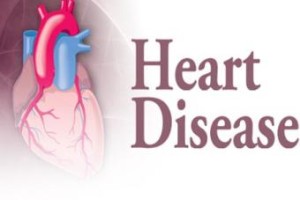- Home
- Editorial
- News
- Practice Guidelines
- Anesthesiology Guidelines
- Cancer Guidelines
- Cardiac Sciences Guidelines
- Critical Care Guidelines
- Dentistry Guidelines
- Dermatology Guidelines
- Diabetes and Endo Guidelines
- Diagnostics Guidelines
- ENT Guidelines
- Featured Practice Guidelines
- Gastroenterology Guidelines
- Geriatrics Guidelines
- Medicine Guidelines
- Nephrology Guidelines
- Neurosciences Guidelines
- Obs and Gynae Guidelines
- Ophthalmology Guidelines
- Orthopaedics Guidelines
- Paediatrics Guidelines
- Psychiatry Guidelines
- Pulmonology Guidelines
- Radiology Guidelines
- Surgery Guidelines
- Urology Guidelines
Girls menstruating before 12 at heart disease, stroke risk in adulthood

Starting periods early--before the age of 12--is linked to a heightened risk of heart disease and stroke in later life, suggests an analysis of data from the UK Biobank study, published online in the journal Heart.
It is one of several reproductive risk factors, including, complications of pregnancy, and hysterectomy, that seem to be associated with subsequent cardiovascular disease, the findings show.
Previous research has suggested that certain reproductive risk factors may be linked to an increased risk of heart disease or stroke, but the findings have been somewhat mixed.
In a bid to clarify any potential associations, the research team drew on data from the UK Biobank, a large population-based study of more than half a million men and women up to the age of 69, and recruited between 2006 and 2010.
Participants filled in questionnaires on their lifestyle, environment, and medical history, which included a wide range of reproductive factors. They also took tests to assess their physical and functional health and provided urine, blood, and saliva samples.
In all, the health of 267,440 women and 215,088 men--none of whom had cardiovascular disease when they entered the study--was tracked up to March 2016 or until they had their first heart attack or stroke, whichever came first.
The average age of the women at the start of the study was 56, and around half (51%) came from the most affluent third of the UK population. Six out of 10 had never smoked.
The average age at which they had started having periods was 13; most (85%) had been pregnant, and nearly half (44%) had had two kids. On average, they were 26 when they had had their first child.
One in four of the women had miscarried, and 3 percent had had a stillbirth. Nearly two-thirds of them had gone through the menopause, at an average age of 50.
Some four out of 10 of the men (42%) had fathered two kids before the start of the study.
During a monitoring period spanning around 7 years, 9054 cases of the cardiovascular disease were recorded, a third (34%) of which were in women. This included 5782 cases of coronary artery disease (28% women) and 3489 cases of stroke (43% women).
Analysis of the data showed that after taking account of potentially influential factors, women who had started having periods before the age of 12 were at 10 percent greater risk of cardiovascular disease than those who had been 13 or older when they started.
Similarly, those who went through the menopause early (before the age of 47) had a 33 percent heightened risk of cardiovascular disease, rising to 42 percent for their risk of stroke, after taking account of other potentially influential factors.
More frequent cardiovascular screening would seem to be sensible among women who are early in their reproductive cycle, or who have a history of adverse reproductive events or a hysterectomy, as this might help to delay or prevent their onset of [cardiovascular disease]” they advise.

Disclaimer: This site is primarily intended for healthcare professionals. Any content/information on this website does not replace the advice of medical and/or health professionals and should not be construed as medical/diagnostic advice/endorsement or prescription. Use of this site is subject to our terms of use, privacy policy, advertisement policy. © 2020 Minerva Medical Treatment Pvt Ltd